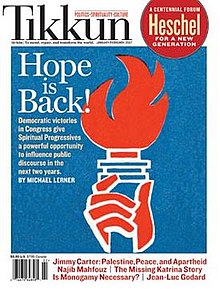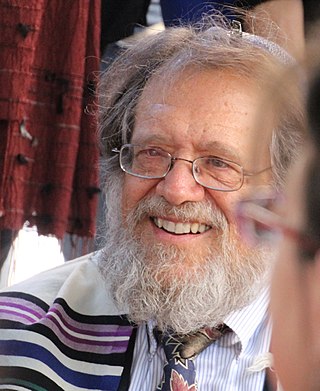
Michael Lerner was an American political activist, the editor of Tikkun, a progressive Jewish interfaith magazine based in Berkeley, California, and the rabbi of Beyt Tikkun Synagogue in Berkeley.
The Dershowitz–Finkelstein affair was a public controversy involving academics Alan Dershowitz and Norman Finkelstein and their scholarship on the Israeli–Palestinian conflict in 2005.
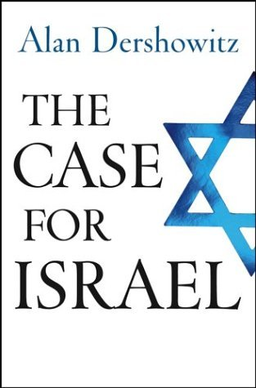
The Case for Israel is a 2003 book by Alan Dershowitz, a law professor at Harvard University. The work is a response to common criticisms of Israel. The Case for Israel was a New York Times bestseller. It also led to the public controversy known as the Dershowitz–Finkelstein affair.
New antisemitism is the concept that a new form of antisemitism developed in the late 20th and early 21st centuries, typically manifesting itself as anti-Zionism. The concept is included in some definitions of antisemitism, such as the working definition of antisemitism and the 3D test of antisemitism. The concept dates to the early 1970s.

Moment is an independent magazine which focuses on the life of the American Jewish community. It is not tied to any particular Jewish movement or ideology. The publication features investigative stories and cultural criticism, highlighting the thoughts and opinions of diverse scholars, writers, artists and policymakers. Moment was founded in 1975, by Nobel Prize laureate Elie Wiesel and Jewish activist Leonard Fein, who served as the magazine's first editor from 1975 to 1987. In its premier issue, Fein wrote that the magazine would include diverse opinions "of no single ideological position, save of course, for a commitment to Jewish life." Hershel Shanks served as the editor from 1987 to 2004. In 2004, Nadine Epstein took over as editor and executive publisher of Moment.

Jacob Shmuel Boteach, known as Shmuley Boteach, is an American rabbi, author, and media host.
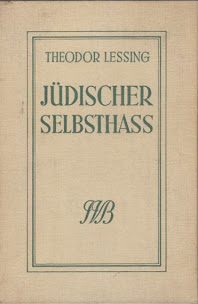
The terms "self-hating Jew", "self-loathing Jew", and "auto-antisemite" are pejorative terms used to describe a Jew whose viewpoints on a specific matter, especially issues relating to Israel, are perceived as antisemitic.
The Committee for Accuracy in Middle East Reporting in America (CAMERA) is an American non-profit pro-Israel media-monitoring, research and membership organization. According to its website, CAMERA is "devoted to promoting accurate and balanced coverage of Israel and the Middle East." The group says it was founded in 1982 "to respond to The Washington Post's coverage of Israel's Lebanon incursion", and to respond to what it considers the media's "general anti-Israel bias".

The Network of Spiritual Progressives(NSP) is an international political and social justice movement based in the United States that seeks to influence American politics towards more humane, progressive values. The organization also challenges what it perceives as the misuse of religion by political conservatives and the anti-religious attitudes of many liberals. In the international sphere, the NSP seeks to foster inter-religious understanding and work for social justice.
Spiritual left refers to a spiritually or religiously based position that shares the social transformative vision of the political left and its commitment to social justice, peace, economic equality, and ecological consciousness, but who base their commitment on spiritual or religious traditions.

The Politics of Anti-Semitism is a book edited by Alexander Cockburn and Jeffrey St. Clair and published by AK Press in 2003.

Ruth Wisse is a Canadian academic and is the Martin Peretz Professor of Yiddish Literature and Professor of Comparative Literature at Harvard University emerita. She is a scholar of Yiddish literature and of Jewish history and culture.
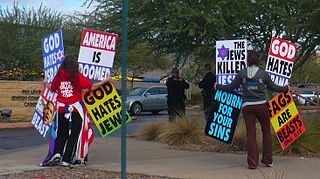
Antisemitism has long existed in the United States. Most Jewish community relations agencies in the United States draw distinctions between antisemitism, which is measured in terms of attitudes and behaviors, and the security and status of American Jews, which are both measured by the occurrence of specific incidents.
The Wicked Son: Anti-Semitism, Jewish self-hatred, and the Jews is a collection of essays by playwright David Mamet, published by Nextbook/Schocken in 2006.
Jill Jacobs is an American Conservative rabbi who serves as the executive director of T'ruah: The Rabbinic Call for Human Rights, formerly Rabbis for Human Rights-North America. She is the author of Where Justice Dwells: A Hands-On Guide to Doing Social Justice in Your Jewish Community and There Shall be No Needy: Pursuing Social Justice through Jewish Law and Tradition. This book includes chapters on tzedakah, poverty, health care, housing, labor, criminal justice, and environmental justice in America, seen through a Jewish viewpoint. She has served as the Rabbi in Residence of Jewish Funds for Justice and as the Director of Outreach and Education for Jewish Council on Urban Affairs.
Antony Lerman is a British writer who specialises in the study of antisemitism, the Israeli–Palestinian conflict, multiculturalism, and the place of religion in society. From 2006 to early 2009, he was Director of the Institute for Jewish Policy Research, a think tank on issues affecting Jewish communities in Europe. From December 1999 to 2006, he was Chief Executive of the Hanadiv Charitable Foundation, renamed the Rothschild Foundation Europe in 2007. He is a founding member of the Jewish Forum for Justice and Human Rights, and a former editor of Patterns of Prejudice, a quarterly academic journal focusing on the sociology of race and ethnicity.

Criticism of Israel is a subject of journalistic and scholarly commentary and research within the scope of international relations theory, expressed in terms of political science. Israel has faced international criticism since its establishment in 1948 relating to a variety of issues, many of which are centered around human rights violations in its occupation of the West Bank and the Gaza Strip.

Trish Vradenburg was an American playwright, author, television writer, and advocate of research to cure Alzheimer's disease.

George Vradenburg is an American attorney, who has been chief counsel at America Online Inc. and CBS Inc., and senior executive at AOL Time Warner and Fox Broadcasting Company. He is co-founder and chairman of USAgainstAlzheimer's (USA2), an Alzheimer's advocacy organization., and co-publisher of Tikkun, an English-language magazine with a progressive viewpoint.
Nadine Epstein an American journalist and author.
